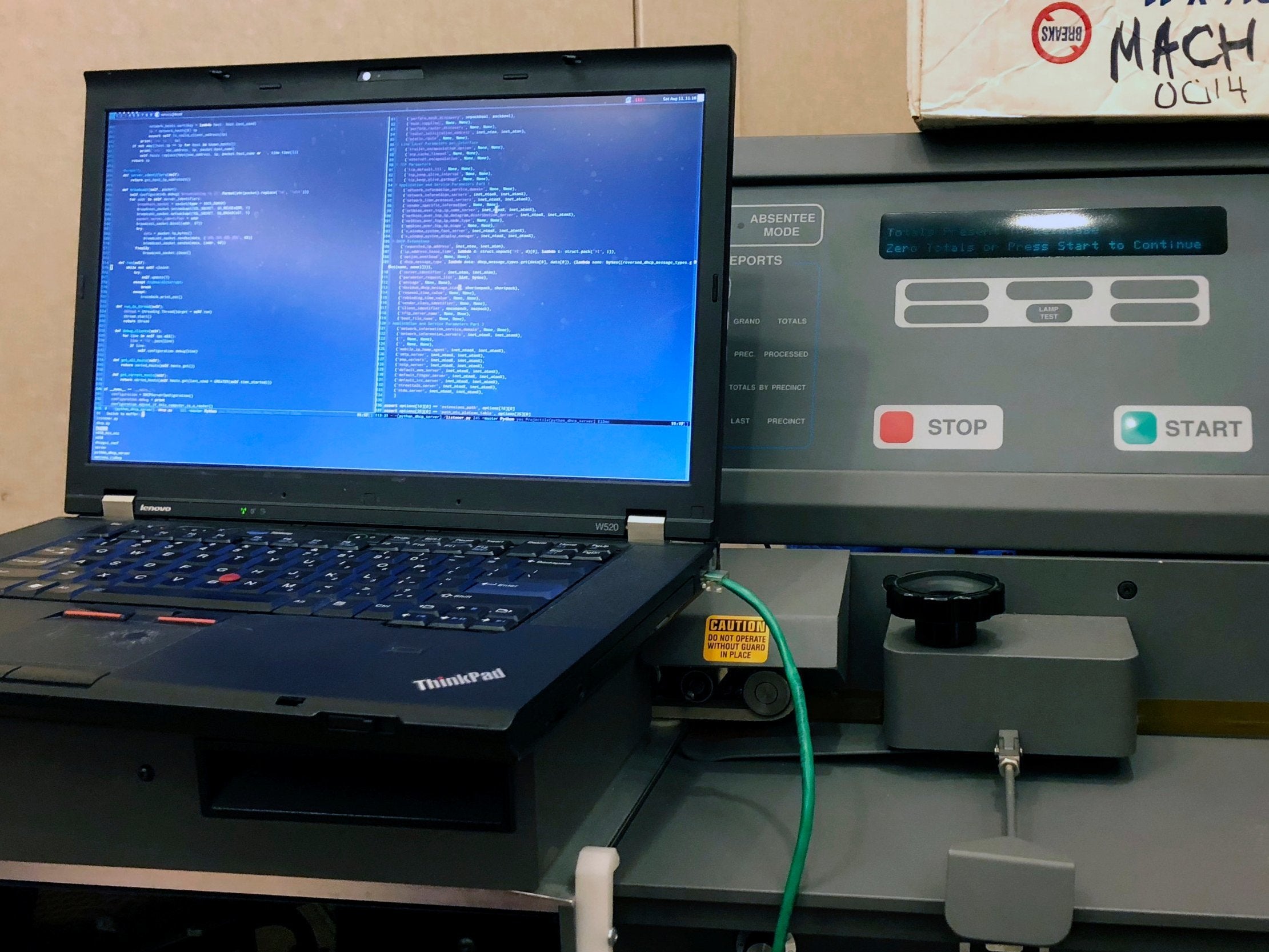'We are constantly one step behind': Finland worries about cyber warfare in shadow of Russia
Helsinki wants creation of an international alliance to combat growing threat

Finland, on the northern edge of Europe and with a population of fewer than 5.5 million, may not seem an obvious player in struggles of geopolitics. But being situated in the shadow of its giant neighbour, Russia, has meant that the country has been inevitably drawn into the world of hybrid warfare.
Helsinki was the focus of global attention as the venue of the summit between Vladimir Putin and Donald Trump, with questions inevitably raised over claims that the Russian president had placed his man in the White House through manipulation of the US election.
Away for the limelight Helsinki has become the base for a major cyber-defence programme for the west with the establishment of the Nato-backed European Centre for Excellence for Countering Hybrid Threat, which has received funding and resources from the US, Britain, France and Nordic states.
On a visit to London last week Antti Hakkanen, the Finnish justice minister, warned that the problem of cyber warfare is going to continue growing and stressed the urgent need for a new international alliance to combat it.
“New horizons have opened for those who want to misuse the freedoms provided by the new media environment. I am afraid we are only beginning to learn how to cope with these new challenges. The risk is we are constantly one step behind,” he said.
“There is a need for a broad coalition among countries which share the same values like the US, the European Union states and Britain to stand together when we have other countries like Russia, China and Iran which do not have the same values.
“We actually have a good system in Europe in the GDPR [General Data Protection Regulation] but we are not operating with the US; we need to have the US with us to make it work properly.”
Mr Hakkanen, who had met UK government ministers during his trip, continued: “We have had elections and referendums in Europe which have been targeted. Now we hear that Russia is targeting the referendum being held in Macedonia.
“I do not know enough about Brexit to say what went on there, maybe there were some issues with financing campaigns. But there are, we know, those who would like to see a country separated from the values of Europe.”
Asked about the practicalities of getting the US to join such a coalition when the current president is alleged to have benefited from election interference, Mr Hakkanen said: “In my recent visit to Washington I found that although they may not be prepared to cooperate on trade or some matters of defence, which is worrying, they are prepared to cooperate in the cyber sector. Mr Trump has routinely dismissed reports of Russian election interference as fake news.
“They know the Russians have been operating in their country, and it may not be good having the world’s best intelligence service, or second best intelligence service, if they have those kinds of attacks.”
The Finnish government has been carrying out its own studies into the systematic interference internationally in a series of votes and have taken a number of precautions to protect its electoral system.
One decision was to abandon plans for electronic voting at the polls, an option being considered by a number of countries.
It was decided in Helsinki, however, that the risks of hacking and other types of interference outweighs potential benefits, and the more cumbersome, but also safer, manual system should continue.
Russian hackers have been accused of targeting election machines in 21 states during the last presidential polls in America. But, just weeks before the crucial midterm elections which may well decide the fate of the Trump presidency, a new report has revealed that cybersecurity flaws in hardware with one machine, used in 23 states, have not been addressed for over a decade.

Other machines, currently used by 18 states, include a smart card reader which analysts hold can be disconnected to disrupt the election process.
In the UK, the Welsh government has proposed pilot schemes exploring the use of electronic voting in local and by-elections, with calls that the programme be extended across the country. One of the main aims of the innovation is to cultivate interest in politics and encourage voting among young people.
Mr Hakkanen, however, believes that electronic voting could lead to people, including young voters, being manipulated rather than enfranchised.
“It increases the vulnerability of the system. It would make it possible to spread false rumours even when the system is not compromised and thus decrease the trust people have in the integrity of elections,” he said.
“We are facing a new phenomenon – there was a study showing that only 20 per cent of the millennials in the US think that democracy is the best system and that it will continue. I think the big problem for the next two decades would not be the economy, but protecting democracy.”
Join our commenting forum
Join thought-provoking conversations, follow other Independent readers and see their replies
Comments
Bookmark popover
Removed from bookmarks